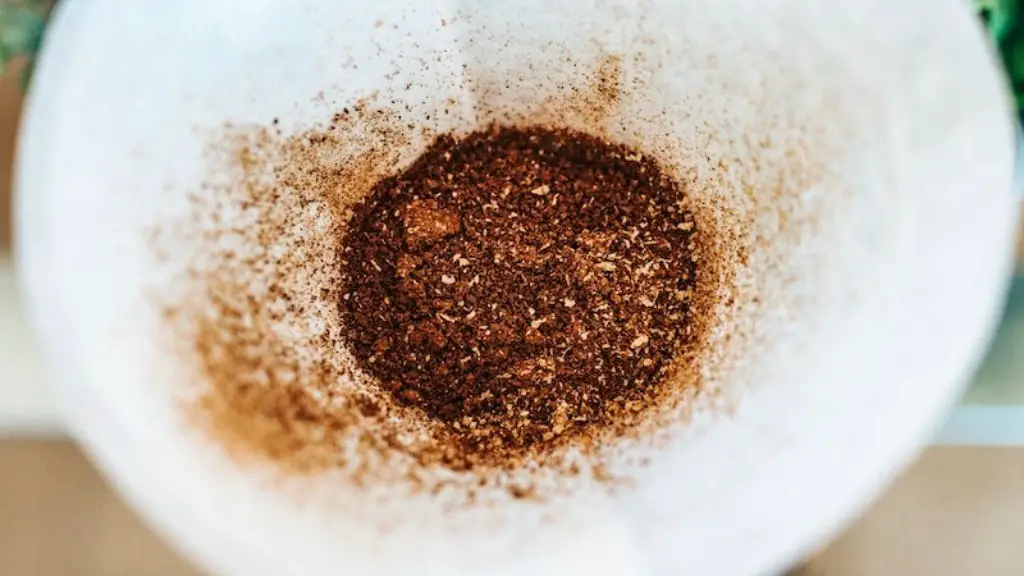Can You Drink Coffee With an Empty Stomach?
When it comes to coffee, many people have their firm opinions about when and how to drink it. Some people can’t function without chugging down a cup first thing in the morning and others swear by drinking their coffee after meals. But what about drinking coffee on an empty stomach? Is it beneficial or dangerous? Let’s dive in and find out.
The Pros And Cons Of A Coffee On An Empty Stomach
There are pros and cons to consider when drinking coffee on an empty stomach. On the plus side, studies have found that coffee drinkers who consume the drink without food absorb the caffeine more quickly and experience more energy. Depending on how much coffee is consumed and how much caffeine is in each cup, this could be a major advantage. Furthermore, due to the higher absorption rate of caffeine, it can help to reduce fatigue and increase attentiveness over the course of the day.
On the downside, coffee on an empty stomach for long periods can have potential health risks. Studies have shown people who have too much caffeine on an empty stomach can cause elevated levels of cortisol, which can lead to higher rates of anxiety, irritability and mood swings. Additionally, drinking coffee on an empty stomach can lead to issues such as nausea, acidity, and indigestion. For this reason, it’s important to be mindful of how much coffee you’re consuming and the time between meals so you can avoid experiencing potential issues.
Is It Better To Drink Your Coffee In The Morning Or After A Meal?
The evidence suggests it definitely depends on the individual. Some people feel that energy when they first wake up before they even eat breakfast and find it beneficial to drink their coffee as soon as they get up. However, if they are concerned about the negative health side-effects, then they may want to consider eating a small breakfast before they drink their coffee. For those who would like to maximize their energy with little side effects, consider eating a light breakfast and drinking their coffee right afterwards. This can help to offset the potential negative effects of drinking coffee on an empty stomach.
How To Minimize Potential Side Effects
If you decide that you’d like to drink coffee on an empty stomach, there are some steps you can take to reduce any potential negative effects. Firstly, make sure that you are only consuming a moderate amount of caffeine each day, as too much can lead to unwanted side-effects. Additionally, experiment with different types of coffees and see which ones have the least impact on your stomach. Some darker roast varieties have been found to have less of an affect on an empty stomach than light roast. Finally, drink plenty of water throughout the day to help stay hydrated and keep your body working as it should.
What Are The Best Types Of Coffee To Drink On An Empty Stomach?
Different types of coffee can have a range of effects on an empty stomach. For those who are sensitive to coffee’s acidity, a light, flavorful roast may be the best option. A light roast can be high in antioxidants and beneficial nutrients, while also being easy on the stomach. However, those who crave a bit more of an energy kick may opt for a medium or dark roast instead. Medium and dark roast coffees have a higher caffeine content and can often help provide that extra boost of energy needed for the morning.
What Are The Alternatives To Drinking Coffee On An Empty Stomach?
If the potential adverse effects of drinking coffee on an empty stomach concern you, there are alternatives to consider. Herbal teas are a great option as they are generally low in caffeine and can provide hydration and essential vitamins. Additionally, decaffeinated coffee may be an option. Decaffeinated coffee still contains some caffeine, so it can still give you that energy boost needed in the morning, while at the same time avoiding the jitters and stomach issues that can come with caffeine.
What Are Natural Energy Sources To Consider?
Apart from coffee, there are plenty of other natural energy sources to consider when looking for a morning pick me up. Natural food sources such as lean proteins, whole grains, fruits, and vegetables are full of essential vitamins and minerals and can give your body the energy it needs in the morning. Furthermore, certain spices and herbs such as turmeric, ginger, and garlic can provide energy, while also having the potential to reduce inflammation that can come from fatigue. And of course, don’t forget to stay hydrated – drinking plenty of water throughout the day can help to keep you energized without having to rely on coffee.
How Does Coffee Affect Your Productivity?
Research has found that drinking coffee can have a positive impact on your productivity, depending on the individual and how much coffee is consumed. For some, coffee can provide a mental boost, while aiding in concentration, focus, and motivation. This can be especially beneficial for those who struggle with productivity throughout the day. However, it’s important to keep in mind that too much caffeine can have adverse effects, so be mindful of what works for you.
The Science Behind How Coffee Affects Your Body
The reason why coffee can give your body such an energy boost is due to the caffeine content in the drink. Caffeine is a stimulant that helps to increase alertness as well as boost focus and concentration. It does this by increasing the production of neurotransmitters such as dopamine and norepinephrine, which send signals to the brain that can cause an increase in energy levels and alertness. Additionally, when caffeine is consumed on an empty stomach, the body absorbs the caffeine more quickly, allowing you to experience the energy benefits faster.
How To Get The Most Out Of Drinking Coffee On An Empty Stomach
To get the most out of drinking coffee on an empty stomach, there are some important factors to consider. Firstly, make sure to only consume a moderate amount of coffee each day and avoid drinking multiple cups throughout the day. Secondly, try to limit the amount of sugar or other additives you put into your coffee – the more natural it is, the better. And finally, experiment with different types of coffee to find which one provides the best energy boost with the least stomach issues.
How To Balance Coffee Intake With Adequate Hydration
It’s important to remember to stay hydrated along with consuming coffee for optimal energy and productivity throughout the day. The ideal ratio is 2 to 1 – for every cup of coffee you consume, make sure you’re drinking at least 2 full glasses of water. Water will help to process the caffeine in the body and allow it to be absorbed more effectively, while also keeping your body hydrated and healthy. In addition, consider adding some natural energy sources such as fruits and vegetables to your diet, as they can help to provide the energy you need throughout the day with little to no side effects.
Conclusion
While it’s possible to drink coffee on an empty stomach and still benefit from the energy boost, it’s important to consider any potential risks as well. Making sure to consume a moderate amount and avoiding adding things such as sugar to your coffee can help to minimize those risks. Additionally, eating a light meal and drinking plenty of water throughout the day can help to ensure you get the most out of your morning coffee, while avoiding adverse reactions. Finally, don’t forget about considering other natural sources of energy, such as certain fruits and vegetables. These can help to provide you with the same energy boost as coffee, but with much less risk.



